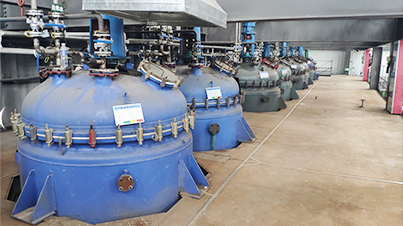Jul . 10, 2024 08:30
Back to list
Water scale prevention chemicals for improved efficiency and equipment longevity in industrial settings.
Water scale inhibitor is a critical tool in the fight against the damaging effects of scale build-up in industrial and commercial water systems. Scale is a common problem in water systems, caused by the accumulation of minerals such as calcium and magnesium. This build-up can restrict water flow, reduce heat transfer efficiency, and lead to costly repairs and downtime.
Water scale inhibitors work by disrupting the formation of scale crystals, preventing them from sticking to the walls of pipes, boilers, and other water system components. This helps to maintain efficient water flow and heat transfer, prolonging the life of equipment and reducing maintenance costs.
There are several types of water scale inhibitors available, including chemical inhibitors that are added to the water system, electronic inhibitors that use electromagnetic fields to prevent scale formation, and physical inhibitors that use filters or other physical barriers to remove minerals from the water.
Chemical inhibitors are the most common type of water scale inhibitor and are typically added to the water system through regular injection or continuous feed. These inhibitors work by binding to the minerals in the water, preventing them from forming scale. They are effective in a wide range of water conditions and are easy to use and maintain

water scale inhibitor. Electronic inhibitors work by creating an electromagnetic field that alters the crystal structure of the minerals in the water, preventing them from forming scale. These inhibitors are often used in conjunction with chemical inhibitors to provide additional protection against scale build-up. Physical inhibitors, such as filters or water softeners, work by removing minerals from the water before they can form scale. These inhibitors are typically used in areas with particularly hard water or where other inhibitors are not effective. In addition to preventing scale build-up, water scale inhibitors can also help to improve the efficiency of water systems by reducing the amount of energy needed to heat water and by minimizing the risk of corrosion and other damage to equipment. Overall, water scale inhibitors are a cost-effective and efficient way to protect water systems from the damaging effects of scale build-up. By using the right inhibitor for your specific water conditions, you can help to prolong the life of your equipment, reduce maintenance costs, and ensure that your water system continues to operate efficiently.

water scale inhibitor. Electronic inhibitors work by creating an electromagnetic field that alters the crystal structure of the minerals in the water, preventing them from forming scale. These inhibitors are often used in conjunction with chemical inhibitors to provide additional protection against scale build-up. Physical inhibitors, such as filters or water softeners, work by removing minerals from the water before they can form scale. These inhibitors are typically used in areas with particularly hard water or where other inhibitors are not effective. In addition to preventing scale build-up, water scale inhibitors can also help to improve the efficiency of water systems by reducing the amount of energy needed to heat water and by minimizing the risk of corrosion and other damage to equipment. Overall, water scale inhibitors are a cost-effective and efficient way to protect water systems from the damaging effects of scale build-up. By using the right inhibitor for your specific water conditions, you can help to prolong the life of your equipment, reduce maintenance costs, and ensure that your water system continues to operate efficiently.
Share
Latest news
-
Understanding Polycarboxylic Acids: Properties, Applications, and Future PotentialNewsJul.28,2025
-
Scale Inhibitor Explained: How to Protect Your System from Limescale and Hard Water DamageNewsJul.28,2025
-
Scale and Corrosion Inhibitors: Essential Chemicals for Industrial Water System ProtectionNewsJul.28,2025
-
Polyaspartic Acid: A Biodegradable Polymer for Sustainable ChemistryNewsJul.28,2025
-
Isothiazolinones: A Versatile Antimicrobial Class with Industrial Power and Regulatory ChallengesNewsJul.28,2025
-
A Deep Dive into 2-Phosphonobutane-1,2,4-Tricarboxylic Acid (PBTC)NewsJul.28,2025





